Last year, Charlotte was studying environmental enterprises at school and watched the video about a new business in Sierra Leone that transforms coconut shells into briquettes. This manages coconut waste, prevents deforestation, and provides a charcoal alternative that burns cleaner.
In 2021, I wrote about Grilling on our Pot… What I didn’t share is that we stopped because we had trouble finding charcoal that didn’t reek of chemicals and emit an oily black smoke. It was a shame because the girls really enjoyed grilling and learning how to respect fire is an important skill to practice.
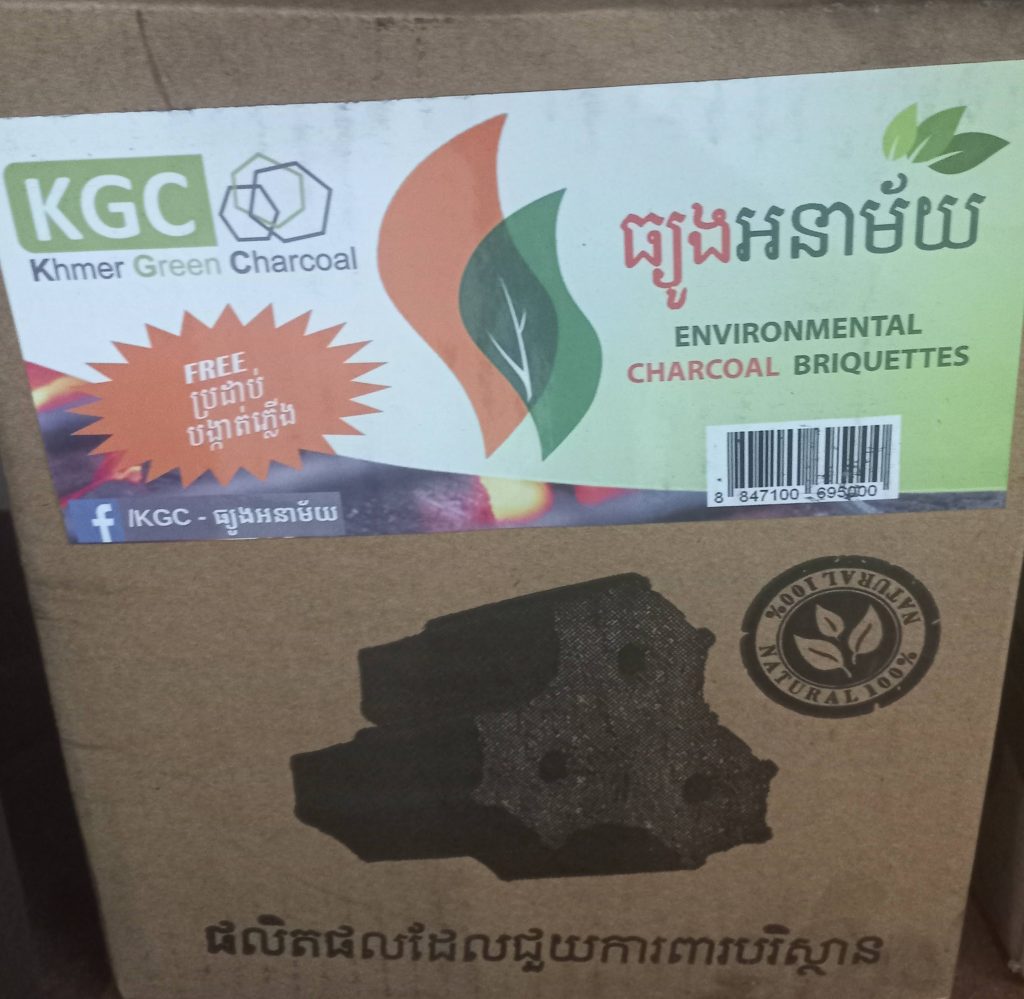
So you can imagine my delight when I discovered locally made Coconut Waste Briquettes being sold at one of the local stores near the Russian Market. The box in the photo above cost around $2.80 while the same amount of traditional Charcoal would be around $1.20. However, as the video notes, the Briquettes also burn longer than traditional Charcoal so the value might be closer than weight alone would indicate.

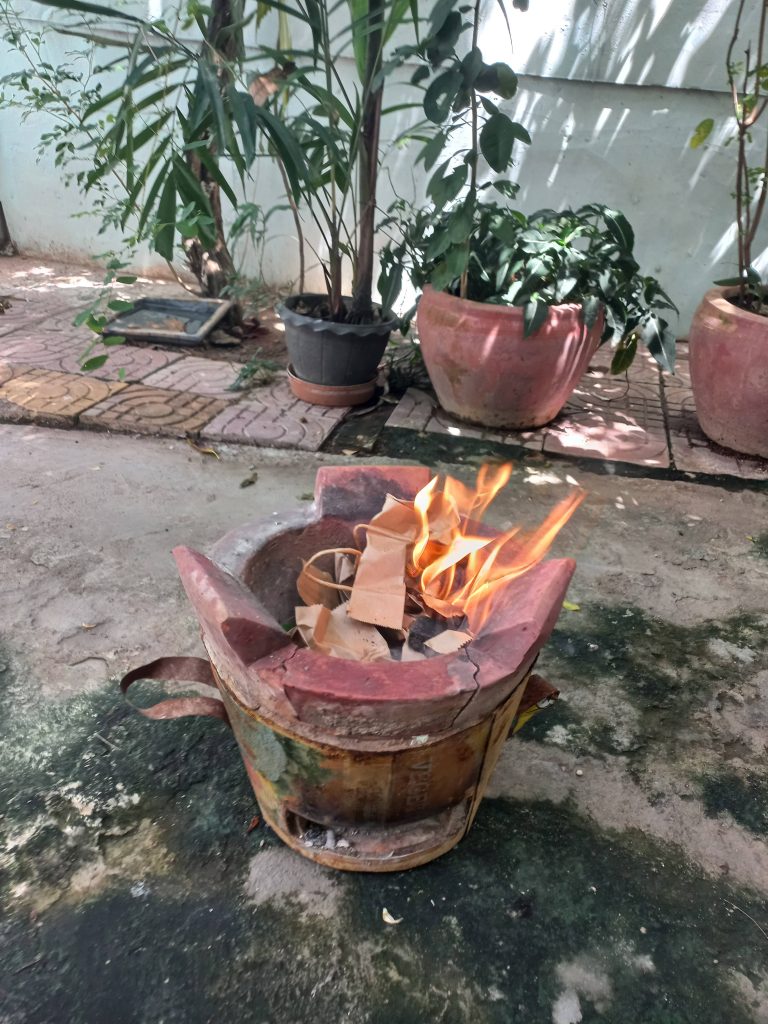
The Briquettes came with starter cubes that are designed to take the place of kindling. Charlotte enthusiastically piled on paper and kindling, but a couple of the starter cubes probably would have been sufficient.
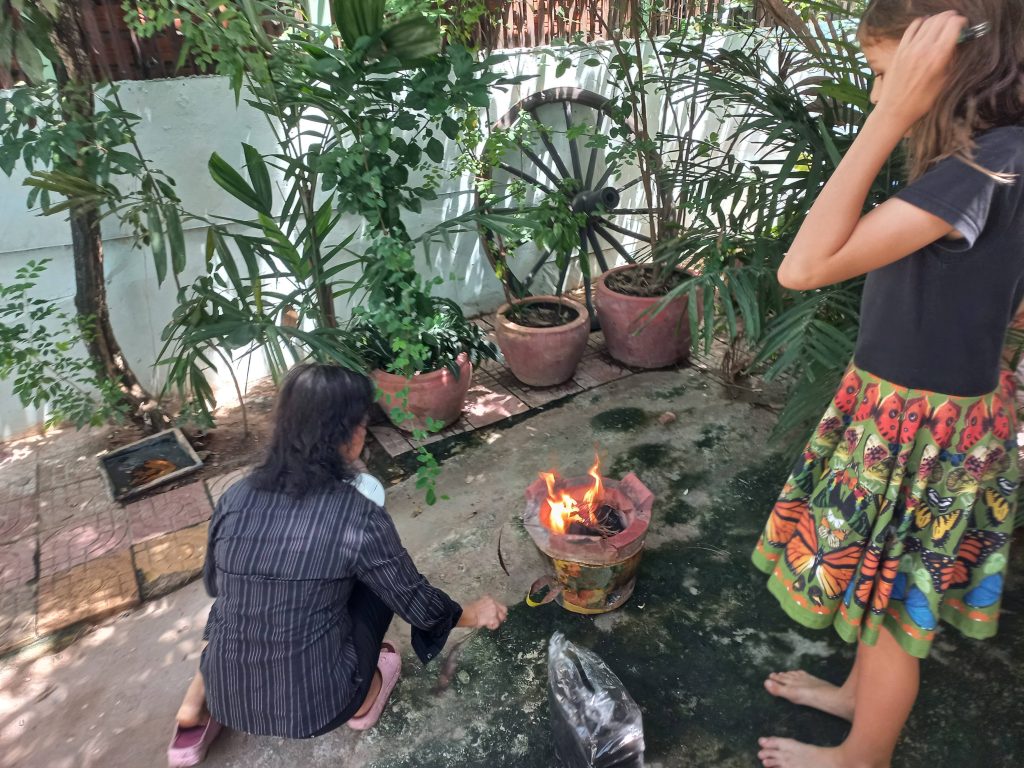
Ming Ramy came over from the office while Charlotte was lighting the Briquettes and coached her on how to get the fire going despite the over-kindling. When Ming Ramy saw what I bought she told me that she’d heard about it and that it was very good for អនាម័យ (a word which covers both sanitation and hygiene in Khmer).
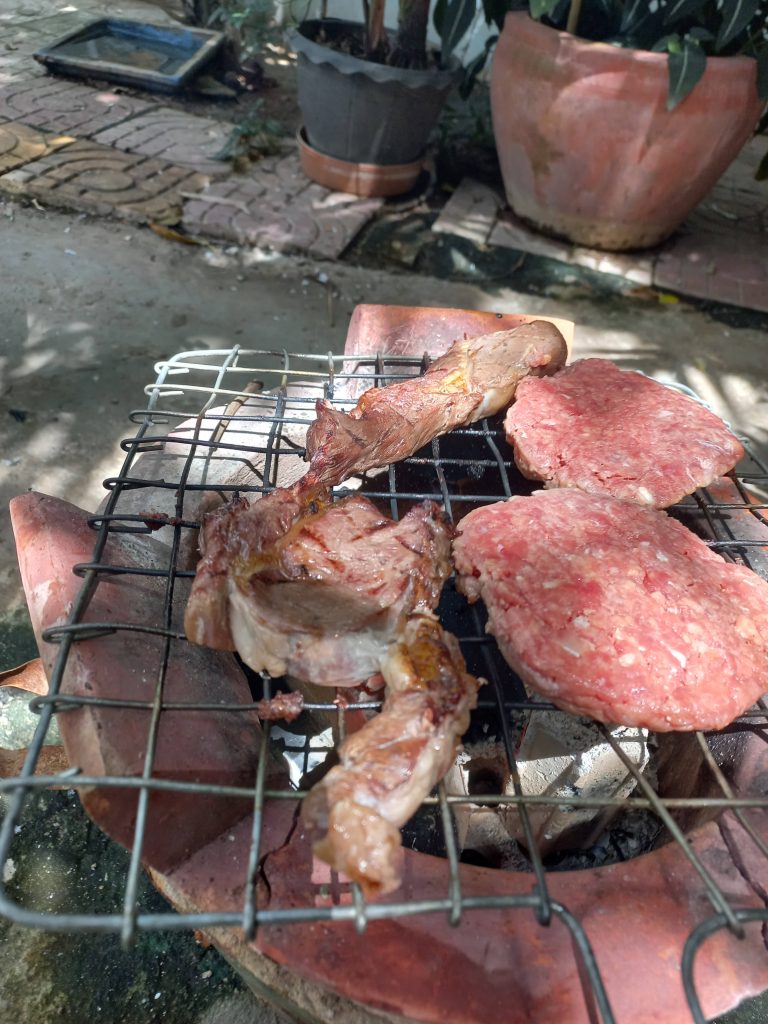

Once the paper and kindling burnt away the Briquettes provided a steady heat that made it easy to cook Water Buffalo burgers. (I’m not joking, there’s a place near us that sells ground Water Buffalo meat.)
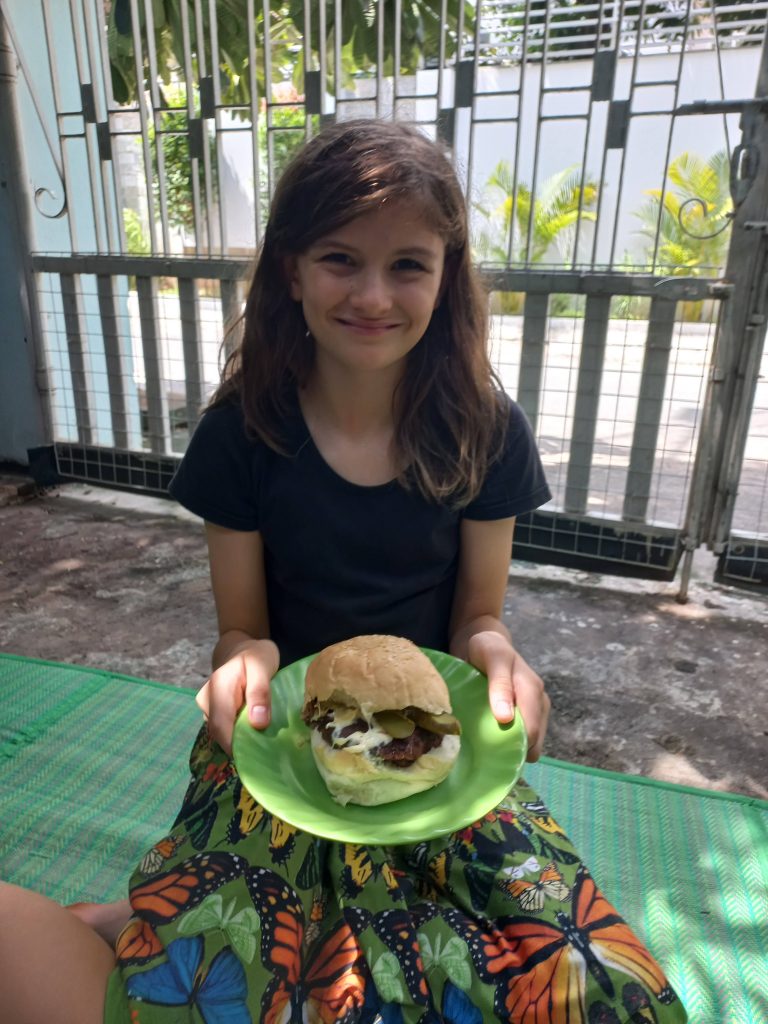
The Briquettes have a hole in the middle that provides airflow and allows for an even, hot burn. By the end they burn away entirely leaving just a little pile of clean ash.
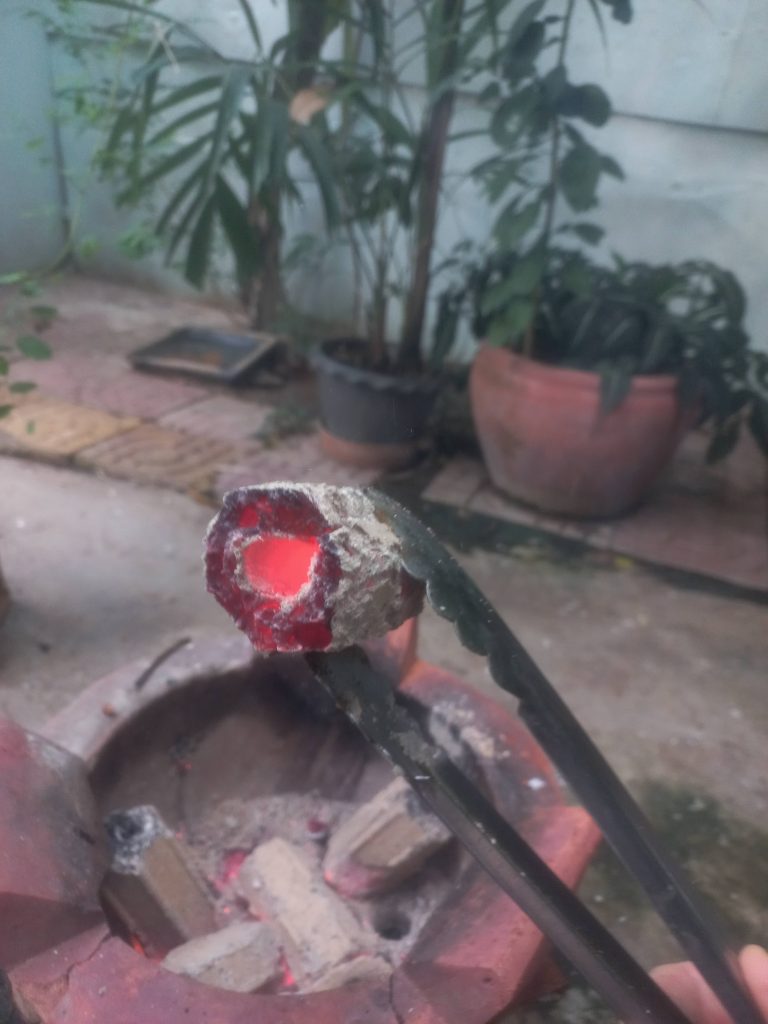
The stable heat is perfect for marshmallows too.

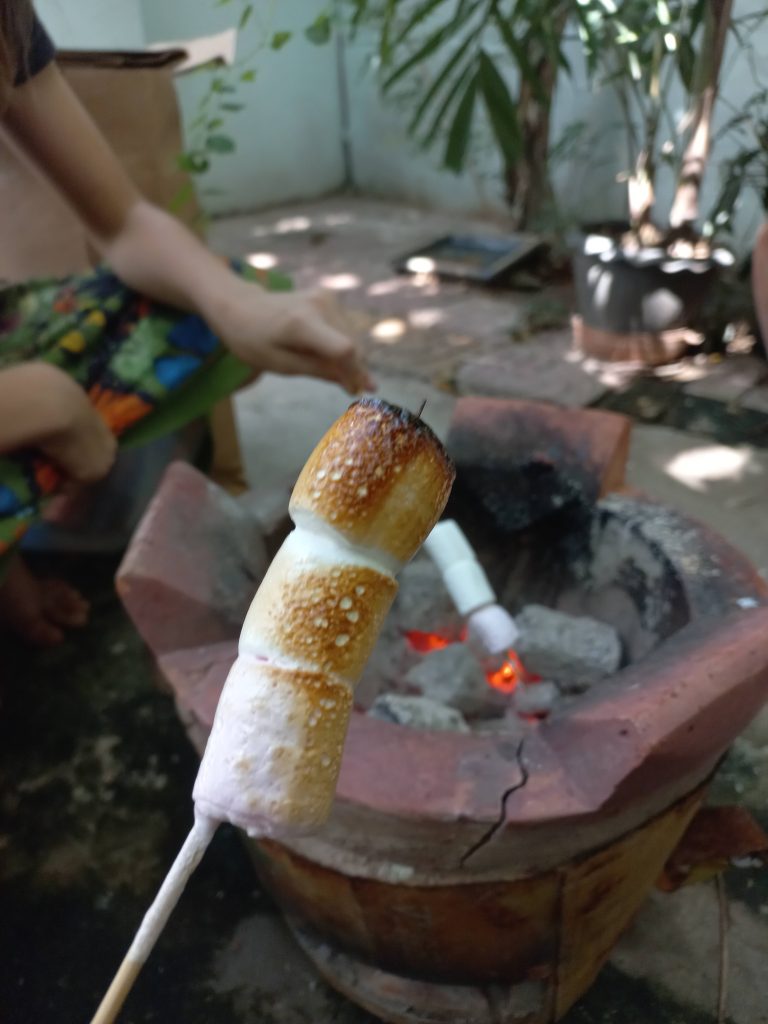
So that’s our latest fun discovery when it comes to the environment and cooking in Cambodia. I’d recommending checking to see if Briquettes made from biomass waste are available in your area.
That’s really great!